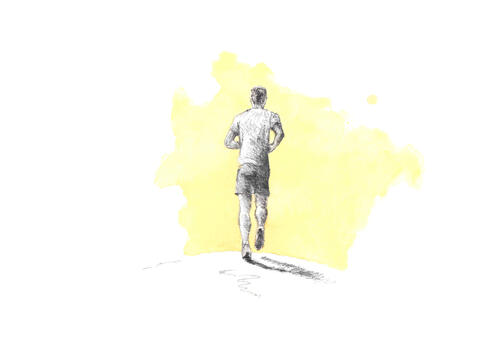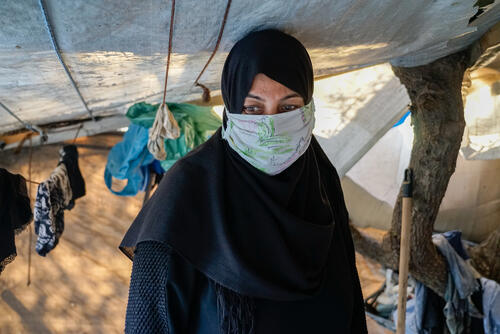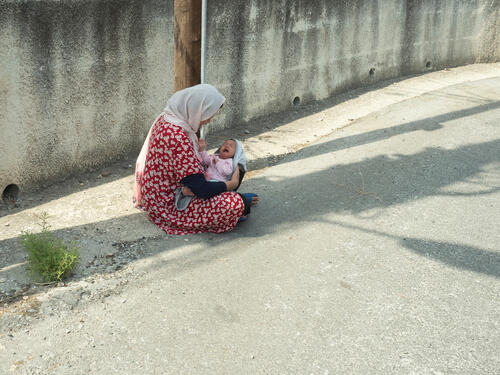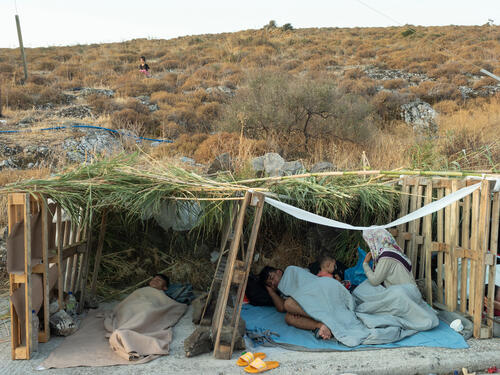“At the start of this coronavirus saga, I thought it’d be all over within a week or two. But after finding out more about the disease and how it was spreading, I realised it was much more serious than I’d thought.
The death toll soared overnight. I hadn’t seen it coming and it caused me a lot of stress. When the number of deaths reached 600-700 in Italy and Spain each day, it took a psychological toll on me. I remember having to talk with my psychologist because I was really scared.
I heard stories of people who were in good health one day and by the next day they were dead. Doctors and health workers, too, were falling victim to the disease, which seemed to destroy everything in its path.
I’d already experienced torture before leaving my country and crossing the sea. I’m using my past experience to help me deal with the pandemic.Frederic, torture survivor and refugee in Greece
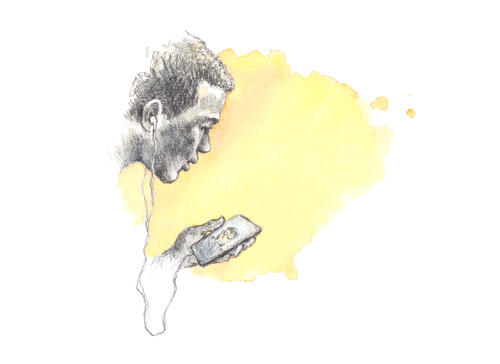
Then the Greek government announced the lockdown. I had to stay in and stop work – my boss asked all of us to stop working. I realised then that the disease would have a real impact on me. I spent a lot of time just thinking about the disease – when it would end, whether I and people close to me would die in the pandemic.
I was thinking about it more and more. A lot of bad thoughts started popping up in my head and I had a lot of flashbacks. I’d suffered enough already and now it seemed the suffering would start again. I wondered how I’d escape it this time.
I’d already experienced torture before leaving my country and crossing the sea. I’d already experienced a time when I was really sick and worried about my future. I went through this and then, thanks to God, after a long period of medical treatment, I recovered.
When I recovered, I said to myself that I would use my past experience to help me deal with the pandemic. I realised that the difficulties I had been through in the past were bigger than this pandemic. This is how I convinced myself that the lockdown was no reason to stop me getting through this.
In the camp we live five or six to a container. I know that I can’t stop people coming in to see my room-mate… We have no alternative – this is the only space we have to live.Frederic, torture survivor and refugee in Greece
The only time that fear fills me is when I’m confined in my container. In the camp we live five or six to a container. I know that I can’t stop people coming in to see my room-mate and I have no choice but to gesture to people to keep away. But that's all I do.
We have no alternative – this is the only space we have to live. At the same time, we’re aware that there are other people in even greater need – people who have even less space – so we have to make the most of the limited space we have.
I feel lucky that at least I’m in a camp, with a place to live. We also have a stadium where we can exercise. So, I’m in a better position than people confined in apartments with no space to exercise.
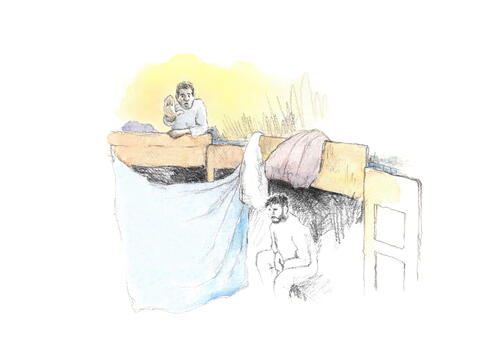
I’m in a recovery process as my knee was injured after the experiences I had back in my country. My medical consultation is currently interrupted due to this situation, but my doctor calls me often to check how I’m doing.
I know that the whole planet is experiencing the same thing, but what’s different for us, as refugees, is that our living conditions, combined with the lockdown and the threat of the virus, impose a double stress.
It's difficult not having people you can talk to. When you don't have people around you that you trust, it's not easy to relax. My psychologist, Zoe, is one of the few people I can really talk to. Since the lockdown started, I’ve talked with her most weeks.
I’d like to thank all the MSF staff for the help they give us because it’s not easy, really. You can't imagine the difference it makes to have this support.”
*Name has been changed
Since 2014, Médecins Sans Frontières's Victims of Torture rehabilitation clinic in Athens offers medical care and psychosocial support for migrants and refugees who have survived torture or other forms of ill-treatment in their country of origin, during the journey to or during their stay in Greece.



